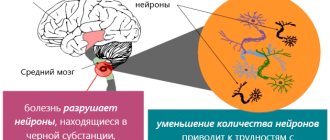Denial, Anger, Bargaining, Depression, Acceptance - 5 main ones. In the article we will tell you what the stages of accepting a situation are, universal rules, and how to apply knowledge from the “Stages of Growth in Awareness” system to reduce the time from stages 1 to 5.
Life is full of emergency situations, everyday and family problems, and financial difficulties. If it is possible to solve them yourself, they are regarded as necessary experience. Over time, they are completely erased from memory. However, how will a person behave if he is faced with a situation that in no way depends on him?
For each individual situation of personal loss or serious stress, there is a general algorithm: from such a person does not believe, then gets lost, and then moves on to acceptance.
Negation
Human nature is designed in such a way that emotions, being a reaction to any stimulus, at the same time include a defense mechanism that allows a person to adapt to an unpleasant situation and continue to live. The stages of this path were described in her book by the American psychologist Elisabeth Kühler-Ross, exploring the emotions of dying people. She calls denial the first stage of reaction to change.
Characteristic
The famous French writer Anatole France said that any life changes are accompanied by sadness, because at this moment a person loses a part of himself. In other words, to start living in a new way, you need to leave your old life (relatively speaking, die).
Denial, anger, acceptance, humility - stages without which it is impossible to switch from negative to positive. Negative changes can affect any area of a person’s life - profession, personal feelings, health, etc. When an understanding of impending changes comes, fears arise that they will be negative and will have a bad impact on the quality of life.
Therefore, the reluctance to change something manifests itself in denial, the time period of which, according to various sources, ranges from several minutes to several years, although it is usually 2 months.
At first, a person does not want to understand the current situation. All his actions turn out to be spontaneous, not guided by consciousness. To others they seem illogical and not subject to common sense. However, denial is a mandatory stage of experiencing any negative situation.
A person who finds himself in a difficult situation constantly tells himself that he does not believe that this happened in his life. If serious health problems begin, he stops believing the doctors’ verdict. If it comes to problems at work, he does not believe that he will be laid off or there will be other troubles. If the basis is personal motives, the person does not believe that close people could do this to him.
Why is the stage needed and why is it dangerous?
Denial can be viewed in different ways. On the one hand, the brain does not work in conjunction with external actions, is not able to rationally process all incoming information and has a bad effect on life. But on the other hand, such a dull consciousness serves as a psychological barrier and does not allow one to plunge headlong into the problem and fully understand it.
Such inhibition helps the brain to gradually accept negative information in dosed form and draw certain conclusions. Otherwise, the brain will experience great overload.
The danger of this situation is that a person can miss not only the external manifestations of changes, but also the reaction of his body.
During this period, someone isolates themselves from society, does not talk about their troubles, closes off and does not get in touch for a long time.
At this moment, the brain, protecting a person from oppressive feelings, dulls his perception, so people practically do not react to external events - be they negative or positive.
Unfortunately, this condition can become chronic.
How to get
Denial, anger, acceptance, humility are stages that many, if not everyone, go through in life.
You can go through the stage of denial with minimal “losses” for the body only if you try to understand that during this period the body turns on its defense system. Therefore, during denial, you do not need to follow any of your internal impulses and make important decisions.
How can I help you
Since at the first stage of experiencing grief a person feels indifference to everything or is protected from everyone, you should try to establish contact with him. The goal is to bring him “to a sense” of reality. Dialogue plays a big role in this.
You can call a person for contact by asking him different questions:
- What's happened?
- What are you feeling now?
- What do you think you'll do next?
- How might what happened affect your future life?
Such a frank conversation should not be taken as an attempt to interfere in someone else's life; rather, it is an opportunity for the sufferer to look at his problem from different angles. Analyzing the situation can evoke emotions that will quickly help you return to a full life.
But sometimes it is useful to give a person some time alone with his thoughts.
Symptoms and signs of the disease
You should make an appointment with a doctor if the following symptoms occur frequently:
- obsession;
- memory problems;
- obsessive thoughts;
- the need to double-check everything or do it slowly to eliminate any error;
- inability to focus and concentrate on a task;
- the need to repeat actions.
Individually, these symptoms may not be associated with the disorder or may occur periodically. You need to see a doctor if they appear constantly and you yourself feel that this is bothering you.
Anger
Anger is a difficult time. At this moment, a person realizes the existence of a problem and its seriousness. Among all existing emotions, one begins to actively manifest itself - aggression.
Characteristic
The main manifestations of this period of experiences:
- feeling that no one understands you;
- complaints about bad circumstances;
- outbursts of anger for any reason;
- searching for the reasons for what happened, often ephemeral.
It happens that the anger of the sufferer is directed at the very cause of the tragic events - someone who has passed away, or a doctor who has made an unpleasant diagnosis, or an ex-husband (wife).
Why is the stage needed and why is it dangerous?
Denial, anger, acceptance, humility are stages, each of which has its own purpose. The anger stage is necessary, paradoxically, because it gives vent to emotions. They do not accumulate inside, which means the negativity comes out.
The only danger is that if such a flow of anger is directed at the people around you, it is fraught with complications in the relationship, including a breakup, because not everyone can withstand such communication.
How to get
To survive this stage as quickly as possible, experts advise directing energy flows into various activities:
- meditation;
- sport;
- hobby;
- communication with animals and children;
- visiting exhibitions, theaters, cinema.
Physical activity during this period will come in handy; even basic walks, exercises or jogging will lead to the release of the necessary hormones, which will help the nervous system recover faster.
You can think about your hobbies: drawing, writing poetry, listening to your favorite music, playing musical instruments, reading books, etc.
It wouldn’t hurt to take this advice: write down on paper everything that worries and irritates you, and then crumple it up and burn it. The main thing is not to hold anger within yourself, but to give it the right way out. Otherwise, a bundle of nerves collected inside the body will result in various malfunctions in the functioning of important organs and systems.
How can I help you
People going through this stage need to be listened to. There is no point in dissuading them. You need to try to persuade them to redirect their energy in another direction, to offer their participation in this (spending time together, hiking, participating in various events, etc.). Sabotage should be stopped immediately and not react with anger to aggression; it is better to withdraw for a while, and after some time return to the conversation.
How we help with difficulties in decision making
- Let's diagnose. We examine the patient and learn about the stress he has suffered. If necessary, we carry out additional hardware examinations and prescribe tests to assess physiological changes in the body.
- We provide psychotherapy. We prescribe a course of psychotherapy aimed at eliminating the cause of difficulties in decision making.
- We select drug treatment. If the disorder cannot be cured by psychotherapeutic intervention alone, we select medications - antidepressants, nootropics, tranquilizers and others.
Bargain
This period is unusual, because a person who has experienced grief suddenly begins to try to fix something. He consoles himself with the thought that everything can be returned.
Characteristic
The main indicator of the progress of this stage is attempts to change something in your life (change your wardrobe, hairstyle, job, place of residence).
Thus, a person hopes that with such changes the situation will turn in the direction he wants. This is especially clearly seen in the example of parting with a loved one (breakup of a relationship).
Changing the image, according to many, should prove to the ex (ex) that he was mistaken.
In such cases, believers often “bargain” with higher powers, asking them for help and promising to change something in their lives.
Why is the stage needed and why is it dangerous?
Bargaining must be experienced in order to begin to act, and not freeze in your grief. Some people are able to realize their mistakes, begin to take care of their health (in case of illness), try to change, become punctual, responsible (if they have problems at work). But not all of these actions will be productive.
The desire to return a departed loved one or to prove something to his offender can go to extreme measures, for example:
- constant threatening calls;
- negative messages in instant messengers;
- turning to fortune tellers, magicians and sorcerers, or even crime bosses.
The purpose of such actions is one - to restore harmony in relationships or to punish the offender.
The danger of the situation is that such actions can lead to the opposite effect - hatred, anger, misunderstanding on the part of others.
How to get
Understanding the situation will help you survive this time period, which usually does not last long, because something happened that could have happened to anyone. Here the desire should prevail not to harm someone, but to correct (if possible) the situation.
Promises to change must become reality. You can make a plan for changing your life for the near future and strictly adhere to it. Believers can communicate with the priest, everyone else can communicate with loved ones.
How can I help you
To prevent “bargaining” with other forces from leading to internal destruction, a person needs the help of his neighbors. In this case, you can help by convincing the person that not everything can be returned back. Perhaps this is the beginning of a new stage, and what it will be like depends on the person himself.
The desire to distract from difficult thoughts and joint activities will help to soften the experience.
Despite the fact that it is impossible to change the current situation, most people dream of a better outcome, and when they notice that everything remains the same, a dangerous and protracted stage begins - depression.
Advantages of treatment in our clinic
- We carry out comprehensive diagnostics
. We conduct an inspection, prescribe tests and hardware examinations to accurately determine the cause of the problem. - We select treatment individually
. We take into account the disease that caused difficulties in decision-making, general health, and the presence of concomitant diseases. Taking this into account, we select medication and psychotherapeutic treatment. - If necessary, we treat in a hospital
. If we identify a disease that requires hospital treatment, we place it in a clinic. We provide comfortable living conditions and constant supervision of medical staff. - We treat anonymously
. We don’t register him with a mental health clinic, and we don’t report him to his place of work. We ensure the confidentiality of the patient's medical record.
To make an appointment with a doctor or get more information about treatment, call or request a call back. We’ll call you back, answer your questions, and make an appointment at a time convenient for you.
Depression
Denial, anger, acceptance, humility are the stages of grief. Among them there is one more – the hardest and longest. This is the stage of depression.
What makes it different is that it starts abruptly. Psychologists characterize it as a system of repetitive negative thoughts and feelings.
Characteristic
Depression can be recognized by the following signs:
- the person withdraws into himself;
- lack of appetite;
- poor sleep;
- lack of concentration;
- does not pay attention to his appearance;
- lack of motivation to do anything;
- perceives everything around him exclusively in a negative way;
- thoughts about the meaninglessness of existence and suicide may appear.
The more such signs appear, the more difficult it is to get out of this state. It occurs in several stages: initial, accepting and corrosive (some people only go through the first stage).
At first a person thinks that he is tired. He doesn’t want to do anything, his sleep, appetite and mood worsen. At the receiving stage, the symptoms worsen, the body is tortured, and mental changes occur. The corrosive stage is characterized by strange behavior, refusal to accept any information, manifestations of bipolar disorder, mood swings and thoughts of leaving life.
Why is the stage needed and why is it dangerous?
According to psychologists, not everyone with this stage can cope with its manifestations and commit suicide. But, nevertheless, it prepares you to accept pain. Only a specialist - a psychologist or psychotherapist - can correct such a critical condition.
How to get
During this difficult period, it is important to adhere to the same lifestyle and daily routine. You need to play sports as before, remember your hobbies, and communicate with people. In this case, the body will produce hormones that help to move more smoothly to the last stage of grief. Otherwise, a hormonal imbalance will occur and the condition will worsen significantly.
How can I help you
During this period, a person should not be alone with his misfortune. The best option is to consult a psychologist. The specialist will prescribe a course of treatment and monitor the patient throughout the entire period of therapy. In addition, it will help increase self-esteem and begin to live fully.
In the process of experiencing, some people do not go through this stage and go directly to acceptance.
What is this disorder and what causes it?
Difficulty making decisions
— manifestation of a mental disorder or a negative impact on the psycho-emotional state. They are manifested by difficulty in making a choice, doubts that relate to a specific problem or are of a general nature, that is, they apply to all or many decisions in a person’s life.
Difficulties in decision making can cause positive and negative impairments:
| Positive | Negative |
|
|
Adoption
The stages of denial, anger, bargaining and depression are left behind. Now the sufferer enters the final stage, which is called acceptance, humility. This does not mean admitting the worthlessness of existence and giving up from powerlessness.
Acceptance implies understanding what is happening and understanding that there is a problem and it does not allow you to live fully. A person begins to become convinced that he needs to get over this and move on.
Characteristic
Until a person can truly deeply understand the essence of the problem, he will not be able to get rid of it. This condition can be compared to trying to quit smoking. The smoker feels bad because his body has not yet rebuilt itself. On the other hand, a person feels the taste of freedom from habit. In this regard, he is comfortable.
During the period of acceptance, a person feels morally empty and tired. He is exhausted and ready to accept the reality of what is happening. He thinks a lot about what happened, but does not torture himself, but draws conclusions. They concern all areas of life, since any stress affects them to a greater or lesser extent.
It is during this period that he can discover something new in himself - skills and talents hidden somewhere inside.
Why is the stage needed and why is it dangerous?
The importance of this stage is undeniable, because without it it is impossible to enter normal life.
Unlike other stages of accepting the inevitable, the last stage is not dangerous, since it is adaptive in nature and moves a person towards mental stability.
Undoubtedly, the memories of the experience are still fresh, but they are not felt as acutely. The brain completely controls emotions and adequately perceives everything that happens around.
Mental trauma will never disappear from life, but will enter its context. You need to live with it, because you won’t be able to change the situation. A person can experience this mental trauma again from time to time, but without any special outbursts of emotion. At least he can control them now.
How to get
To get through this stage, you should lead a normal lifestyle, communicate more, and do what you love. A sign that this stage has already arrived is a change in the questions asked by a person who has experienced grief. Instead of “Why did this happen to me?” he asks: “How to get out of this crisis?”
Denial, anger, acceptance, humility of terminally ill patients
In search of an answer to this question, a person will begin to experience new feelings - more positive and life-affirming.
How can I help you
The help of others can only consist of supporting loved ones. They must restore their mental state themselves. To do this, they need to return to work, to their familiar environment.
The described stages of recovery from the state of grief are conditional and may have different manifestations. But everyone who has experienced grief has felt something similar.
No one is immune from tragedies - small or large. But everyone should remember that stages such as denial and anger will be inevitable, but after all the difficulties, acceptance and humility will come and life will again gain new momentum.
Humility
Somewhere by the winter of 2023 - 2024, when the understanding of deception will be supported by obvious facts, in Ukraine for many the fifth and final stage will begin - humility, when all the negativity will be replaced by indifference and even unexpected optimism, especially against the backdrop of new hope, because by that time politicians will launch a new race for the right to grab their piece, of course, if there is still something to grab. Unfortunately, it is hard to believe that those who reach the fifth stage will learn the moral of Ukrainian history, which in many ways is an excellent example of cyclicality.
Evgeny Gaman, specially for News Front
Be sure to subscribe to our channels to always be aware of the most interesting news News-Front|Yandex Zen and Telegram channel FRONT notes
Zelensky spat in the face of his own people - Alexey Zhuravko










